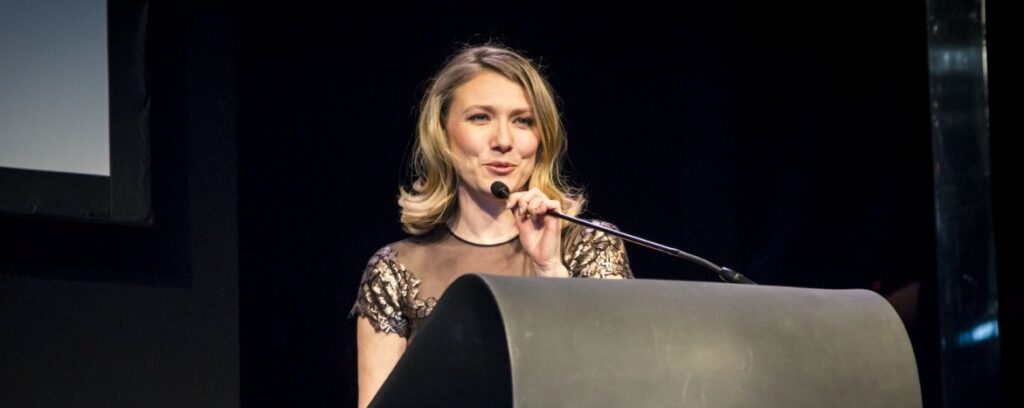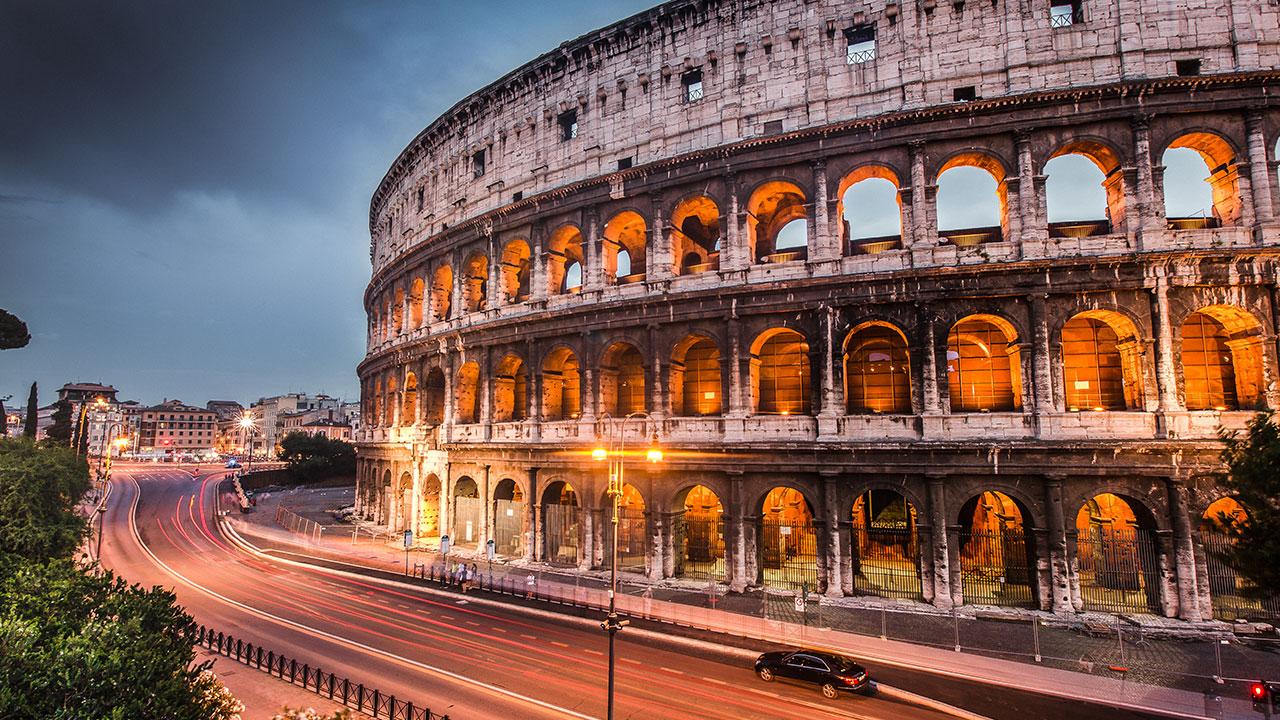
Italy is a bastion of art and culture, with deep roots in sculpture, painting, poetry, architecture, and cuisine. But when it comes to video games, what many of us consider to be modern (albeit commercial) art, Italians have a hard time considering games to be anything more than a passing fad. Despite the billions of dollars spent on mobile, esports, and video game sales, Thalita Malago, director general of the AESVI (the video game trade organization in Italy), has spent the vast majority of her career in video games trying to convince the Italian government that games are worth funding.
GameDaily spoke with Malago about the challenges of the Italian game development scene, where Italian developers excel, and what the future may hold.
“[In the beginning, we had just the publisher members that were the main multinational publishers having local subsidiaries in Italy,” Malago said, when asked about the early years of the AESVI. “Then during the years, we decided to open the doors to Italian game developers. Now we represent more than 60 game developers [that have] offices in Italy, Italian game developers.
“We are an association representing both publishers and developers. We are currently working on a review of our bylaws, because we would like to become a more open association, and to enlarge our association so as to represent the whole business community around gaming in Italy: esports operators, and all the providers and all the companies that are working in this sector in Italy.”
Before the AESVI tapped her to start the association in 2006, Malago was working as a lawyer at Microsoft. “Then, I was called by this association that had just been funded by members, and they wanted to have someone coordinating the activities and starting up this new adventure of having a trade organization in Italy,” Malago said, still a bit incredulous after all of these years.
“At the time I was quite young. It was, let’s say, more or less 13 years ago. I was 30, so I was very young. I did this interview with my board members. For me, it was something like a joke because I said, look, I’m young, I’m a woman. They won’t ask me to do this, because I’m not fitting probably their idea of who should be the director general of the association.”

Italy’s traditionalism has prevented video games from taking root, both culturally and financially. While there are studios making waves, including Milestone and Ride 3, the industry is fractured and years behind France, the U.K., and North America. And a lot of the work that Malago and the AESVI has done, especially in the beginning, has been “about protecting the industry from legislative threats” in Italy.
“We worked a lot on minor protections because in Italy, we had a lot of draft laws willing to introduce different rating systems than PEGI,” Malago noted. “Or a number of legislative proposal on violent video games. At the beginning, we carried out more defensive work. [Now we’ve] started to build … some pillars to help the association to grow, and also the industry to improve its reputation towards the public institution.”
These pillars include Milan Games Week, which Malago says is “similar to Paris Games Week,” and is focused on the entertainment side of the industry and very consumer friendly. Last year, Milan Games Week, which debuted in 2011, saw 160,000 visitors (including 800 Italian journalists, bloggers, and YouTube personalities) over the three days it ran.
The AESVI also runs Games Industry Day, which is “an annual forum held in Rome with public institutions and industry representatives, speaking about opportunities around the video game sector.” Out of that important industry-centric event, the Italian game developers (and the AESVI) was able to secure similar tax breaks to those enjoyed in the U.K. and France.
“We are working with the government because the tax breaks were introduced by the law, but now we need to have an execution decree that will be sent to the European Commission for approval,” Malago said. “This is the same procedure that France and the U.K. followed. So, we had these tax breaks approved one year and a half ago, and we were also able to get our government on board for promoting Italian companies abroad.”
Malago and the AESVI are also working on an event just for the association, hopefully in Tuscany, but the details won’t be finalized until later this year. And, as the icing on the AESVI cake, Malago recently wrapped up an event held in conjunction with the Ministry of Culture, which was a study day for video games and museums.
“I [spoke] with 50 executives from the national museums in Italy to talk about opportunities coming from video games for museums,” Malago said. Italy may not have a Strong National Museum of Play in their immediate future, but it’s a step in the right direction to correct the public’s perspective of video games as art.
The AESVI is fighting an uphill battle in the Italian game industry. Malago was candid about what these deeper challenges look like, not the least of which is getting a religious country to look at video games as something other than utterly problematic.
“Compared to other countries, [Italian game developers] do not have so much support from public institutions. We are very late in getting public institution support. Of course, we have had some results in the last year, [which has brought] support for international affairs and approval of tax breaks. In Italy, we are living … in a situation where … [the] Italy cinema or movies industry or traditional publishing industry or music industries are considered high value industries.

“We have some difficulties in positioning video games as a cultural and creative industry to be promoted by Italian institutions, because … the country [has] a very Catholic background, and it is not easy to spread the word about the potential of the sector. This is [part of] a [larger] recognition issue. [For] example, some months ago, a former Minister of Economic Development in Italy published a tweet where he said that his children are not allowed to play video games.”
That kind of public misconception is incredibly difficult to get past, especially when it comes from the highest offices of power. And while the AESVI has managed to move the needle with consumers, it hasn’t been able to fully break down those anti-video game barriers that keep the Italian game industry from growing as deftly as it could be.
“Another challenge we have is that we are too small,” Malago admitted, in reference to the average size of a game studio in Italy. “Companies in Italy are micro companies, where the average number of people working for a game development studio is eight. We know we need to work to have studio[s] joining forces, and to have bigger studios that can compete on an international scale.”
According to a recent AESVI census, there are around 127 game studios around Italy. It’s a healthy number, but the studios are lacking in business competencies. Malago noted that part of what the AESVI is doing with developer outreach is helping to fill in those competencies, as many of these studios have “very good teams in terms of programmers, designers; all the technology and creative work is fine.”
“What we are doing as an association, [is] working on building these competencies within studios,” she said. “We have recently launched a new initiative called Game Business Days. Each month we have an industry expert coming from abroad, because we don’t have so many competencies within the country. We [have] an industry expert come in from abroad, mainly from the U.K., but also from other countries, [to talk] with developers about these subjects.”
The vast majority of Italian game developers have bootstrapped their companies, namely because they can’t count on public funds or even venture capital. Italian VCs don’t look at the game industry as a market worth investing in (and there aren’t many Italian VC firms), which had been a long-standing issue in the U.S. game market for a number of years. The outstanding issue? The Italian game industry is seen as “very risky” for investors, despite global revenue overall, especially in digital.
But all is not lost. Malago is confident in what Italy brings to the global game market. Because Italy is still an “emerging country from a production and development perspective,” there’s a lot of potential for international investment in building local studios and building studios from the ground up.
“We are not as established as France or the U.K. or Poland, but we are a country where there’s a lot of potential,” Malago said. “[This is partly] because we have a strong tradition of creativity and technology innovation in other sectors, [in addition to video games.] We have a number of universities and public schools that are investing in education in our sector. We estimate that we have something like 3000 people currently committed in studies related to video game development in Italy.
“We [also] have regional concentrations. Our latest census told us that there are some regions where local districts have started to be established, meaning that we have a concentration of game developers in [a given] region. There are also local public institutions that are considering invest[ing] in the development of their local ecosystem. We have local universities and private schools working [on that]. We have local ecosystems that are growing, and I believe that this is key for the development of the sector.”
These local pockets of development make up the backbone of what makes Italian game development studios stand out, both in Italy and globally. Milestone may be one of the best known studios in Italy, but there are a number of notable teams doing excellent work with games, especially in racing (a long-standing Italian video game specialty, because of course) and horror. Malago was hesitant to highlight specific studios and games because she didn’t want to seem like she was favoring anyone, but we eventually settled on a handful of folks she wanted to mention for pushing boundaries and growing their genres.

“Kunos Simulazioni [is a studio to watch],” Malago noted. “They belong to the group Digital Bros, [which owns] 505 Games, just to give you an idea. They specialize [in] racing games and Assetto Corsa 2 [was] showcased at Epic Games exhibition stand at GDC.
[There have also been a number of] Survival horror games that have came from Italian developers. Some of them have been recently awarded or recognized, such as Close to the Sun by Storm in a Teacup, or Remothered by Stormind Games. Another one that is currently in production in is Daymare 1988 by Invader Studio, based in Rome.”
It’s been 13 years of hard fighting to get the government, as well as public perception, to start tearing down barriers that have made large-scale growth almost impossible. Malago and the AESVI bring years of experience and passion to the forefront, paving the way for the burgeoning studios and compelling games to be shared globally, as well as locally.
Italy and its game developers have come a long way, but it’s a tough road ahead.
 GameDaily.biz © 2025 | All Rights Reserved.
GameDaily.biz © 2025 | All Rights Reserved.